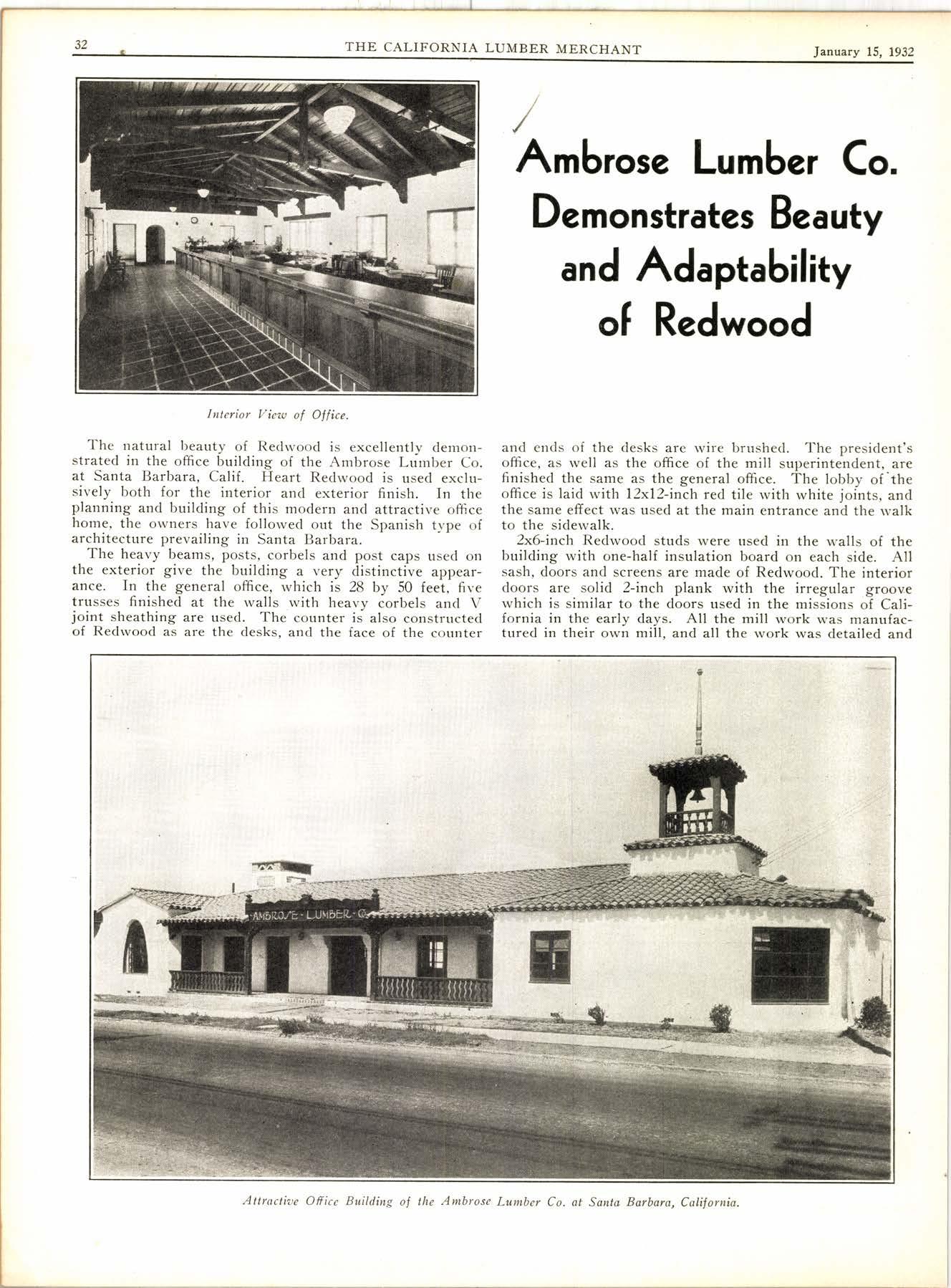
3 minute read
Taxes - - -Tariffs r r r Burea us r r r Prospects
One of the particular clouds that hangs low over the business horizon at the present time, is the threatened repeal of the capital gains tax, effective for the year 1931. This threat has already thrown a scare into business.
To the lay mind it appears that if a man paid enormous taxes on his gains during the several years preceding the clepression, and should nolv be deprived of the off-setting benefit of his losses for 1931, he would be getting a decidedly raw deal.
Many people, perhaps the majority of thinking folks, are entirely in accord rvith the idea that the capital gains tax should be abolished, but not in the manner or time at present threatened. The fair method would be to make that abolition effective the first oI 1932.
The Chicago Journal of Cornmerce aptly says on the subject: "The Government, as Herl>ert Pope, a tax expert recently pointed out, 'has been a partner with investors in the recent catastrophe'; it has taken its toll of the gains ancl by the same token should permit the remaining partners to gain what surcease they can from the decline in values. The Government should not back out of this grand poker game rvhen it has all the chips and all the players are busted."
W. L. Clayton, king of the cotton industry, in an address on January 7th, 1932, ascribed our present industrial and financial plight to several things, including:
The rising cost of Government;
The blunders of Government in business:
The tariff;
Failure to understand the uncollectability of rvar debts.
With regard to the first item, the rising cost of Government, Mr. Clayton said:
"The federal budget alone consumes, like a huge marv, the equal of two-thirds of the agricultural production of the entire United States, for the federal government has surrendered to the rvorld's greatest racket. It has entered business and has become the greatest cotton organization in the rvorld. It has sunk, in the past trvo years, $250,000,ffiO of the taxpayers' money, competing with its private citizens."
Mr. Clayton cleclared that we need the business of the entire world to consume our tremendous products. ancl we pass a tarifi making it difficult for our neighbor nations to sell us. And the less they sell us, the less they buy from us. The result has been a falling off in our exports to a degree that marks the difference between depression and prosperity.
On top of that, says Mr. Clayton, even when foreign nations still want to buy from us in spite of the tariff, we insist that they pay us in gold, instead of in goods, and then we corner the gold market so that they cannot possibly pay us. We forget entirely that "he vvho would sell, must buy."
Speaking of our rising cost of Government, the Chicago Journal of Commerce remarks that "maintaining the bureaucracy at Washington is just like every family in the land taking a free boarder who not only fails to contribute to the family grocery bill but who makes it harder for us to do our own job by telling us how to do it-by putting us in iail sometimes if we disobev."
A brilliant young American, just back from three years in South America, blames the depression-which is scarcely felt in Buenos Aires where he has been living-on American lack of vision and wisdom. He says those folks down there have become accustomed to buying from us almost entirely their automobiles, radios, clothing, furniture, necessities and luxuries of all kinds. But if they are to buy, they must likewise sell, to get the money to pay with. He says just what W. L. Clayton does, that the tariff, together rvith the lack of gold to buy u'ith, has killed them off as purchasers, and turned our goods back to us. And they have just gone back to doing rvithout all that flood of American made goods they had been buying so freely.
He gives us an interesting viervpoint of our orvn dilemma. We build up our "machine age," increasing, intensifying, pyramiding our production to a point where it needed the rvorld for a consumer. And then, after they got the rvorld to buying, we made it difficult for them to buy and pay. So they quit buying. Our factories had to curtail, and the men they let go decreased our American consumption and demand. And as further curtailment followed, home consumption was further reduced accordingly, and lve have a depression because lve lost the world market that took our surplus, and this in turn killed our domestic purchasing power.
Subscription: $10 per year
Including quartedy supplements of correctiotrs and additionskeeping the directory up to date the year around.










